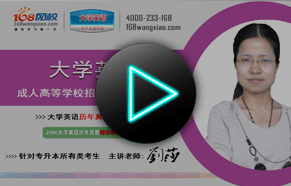1. “How often do you take the medicine ?”
“______ four hours.”
A. For B. Any C. Every D. Each
【答案及解析】答案选 C。
2. “Is this bike yours?”
“No, it's ______.”
A. Bob B. Bobs C. Bob's D. Bobs'
【答案及解析】答案选 C。
3. “Is there ______ good on TV this evening?”
"Sorry, nothing good. "
A. nothing B. something C. anything D. everything
【答案及解析】答案选 C。肯定句中用something,否定句和疑问句中用anything.
4. You have a good suggestion, but it's not as practical as _______.
A. he B. him C. his D. her
【答案及解析】答案选 C。
5. A chemist prepares his experiments carefully before trying to carry _____ in his lab.
A. it out B. out it C. them out D. out them
【答案及解析】答案选 C。carry out 实施 宾格放在词组中间,名词放在词组后面。如,carry out his experiments.
1. “How often do you take the medicine ?”
“______ four hours.”
A. For B. Any C. Every D. Each
【答案及解析】答案选 C。
2. “Is this bike yours?”
“No, it's ______.”
A. Bob B. Bobs C. Bob's D. Bobs'
【答案及解析】答案选 C。
3. “Is there ______ good on TV this evening?”
"Sorry, nothing good. "
A. nothing B. something C. anything D. everything
【答案及解析】答案选 C。肯定句中用something,否定句和疑问句中用anything.
4. You have a good suggestion, but it's not as practical as _______.
A. he B. him C. his D. her
【答案及解析】答案选 C。
5. A chemist prepares his experiments carefully before trying to carry _____ in his lab.
A. it out B. out it C. them out D. out them
【答案及解析】答案选 C。carry out 实施 宾格放在词组中间,名词放在词组后面。如,carry out his experiments.


















